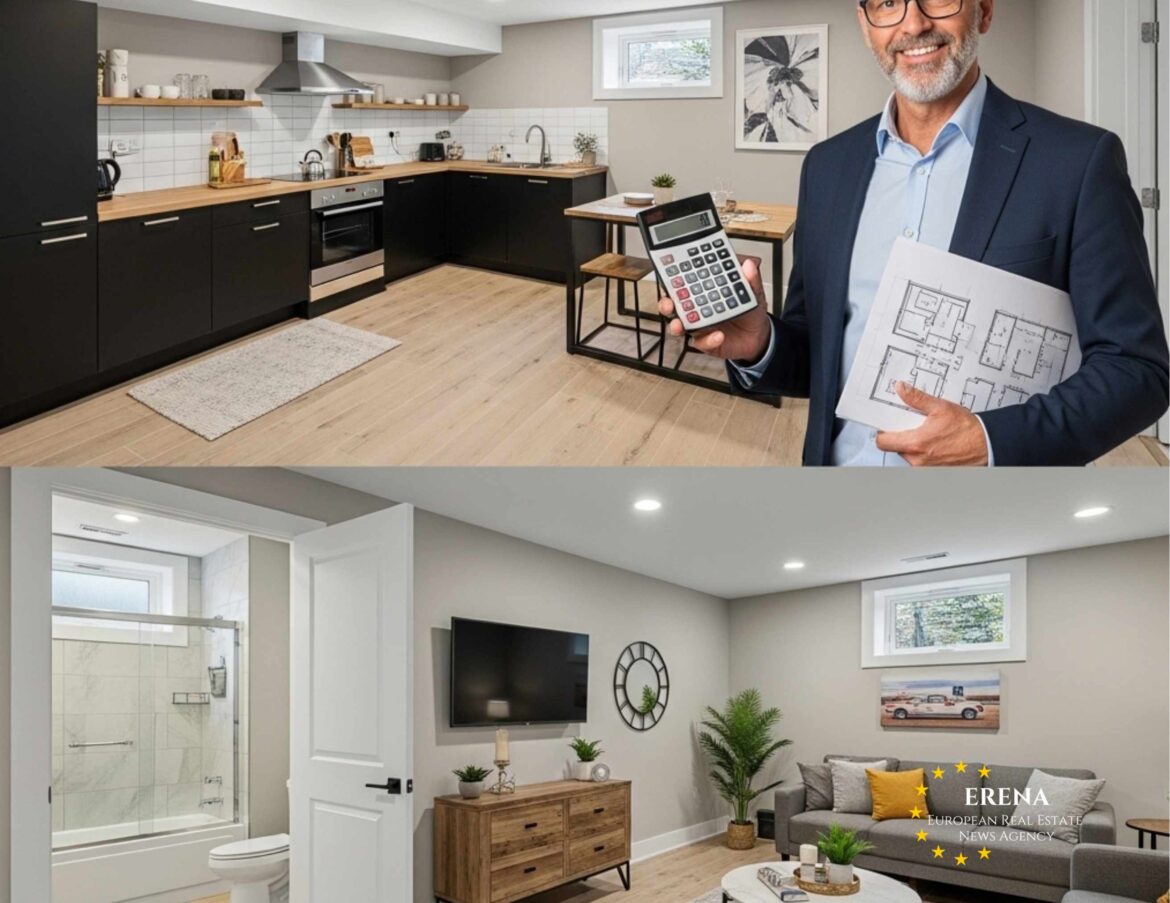In the context of soaring real estate prices and growing demand for affordable housing, many homeowners are turning to their basements as a potential source of income. Converting a basement into a rental suite seems like a practical and profitable solution—but is it truly a smart investment, or does it come with hidden risks?
This article explores the key benefits, challenges, legal considerations, and financial implications of basement rentals to help property owners make an informed decision.
Why Basement Apartments Are Gaining Ground
Urban population growth and a shortage of affordable housing have pushed both landlords and tenants to consider unconventional spaces. Basement apartments—also known as secondary suites or accessory dwelling units (ADUs)—have become a cost-effective alternative in cities like London, Paris, Toronto, and Berlin.
From the tenant’s perspective, the appeal lies in lower rent. In cities where one-bedroom apartments might cost over €1,200 per month, a basement suite can be rented for €700–€900. For the owner, that’s a lucrative opportunity to generate passive income from an otherwise underutilized part of the home.
The Financial Appeal for Homeowners
1. Monthly Rental Income
A converted basement can generate stable monthly income. Depending on the city and quality of renovation, owners can expect anywhere from €400 to €1,000 per month.
2. Increase in Property Value
Adding a legal basement unit may significantly increase a property’s resale value. Buyers often appreciate the income potential and may be willing to pay a premium for such features.
3. Higher ROI Than Traditional Additions
Basement conversions typically cost less than building a new extension or purchasing an investment condo. A well-executed basement apartment can yield a return on investment (ROI) within 4–6 years.
4. Dual Use Potential
Many homeowners use basement suites for family members or as guest space when not rented. Others opt for flexible leasing models like short-term rentals or student housing.
Legal and Regulatory Hurdles
1. Zoning and Building Codes
Laws vary widely by country and municipality. Common requirements include:
- Minimum ceiling height (often 2.1 meters or more)
- At least one egress window for emergency exits
- Separate entrance
- Adequate lighting and ventilation
- Soundproofing and fire separation
- Plumbing and electrical compliance
Failing to meet these requirements can result in fines, legal disputes, or forced deconversion.
2. Permits and Inspections
Before any work begins, owners should obtain permits and schedule inspections. In countries like Germany, France, and Canada, unlicensed basement units are illegal and may void home insurance.
3. Tenant Rights and Landlord Obligations
Once a tenant moves in, the owner must comply with local tenancy laws. This includes providing a safe and habitable space, respecting privacy, and maintaining utilities. Violations can lead to lawsuits or eviction challenges.
Structural and Habitability Concerns
1. Moisture and Mold Risk
Basements are prone to water infiltration, especially in older buildings. Proper waterproofing, drainage, and dehumidification are essential to avoid mold, which can pose serious health risks and lead to legal liabilities.
2. Natural Light and Airflow
Many basements lack adequate windows, making them dark and poorly ventilated. This not only affects comfort but may also render the unit non-compliant with housing codes.
3. Heating and Insulation
Temperature regulation can be more challenging in basements. Installing efficient heating systems and insulation is key to tenant satisfaction and energy cost management.
Market Demand and Tenant Preferences
While some renters appreciate affordability over aesthetics, basement units often appeal to specific demographics:
- University students
- Young professionals
- Temporary workers
- Singles or couples without children
However, families, elderly tenants, or high-income earners typically avoid basement accommodations, reducing the unit’s rental versatility.
Insurance, Taxes, and Financial Planning
1. Property Insurance
Not all standard homeowner policies cover rental suites, especially in basements. Owners must notify their insurer and may need additional liability coverage.
2. Taxation
Rental income is generally taxable. However, owners can deduct certain expenses such as:
- Renovation and repair costs
- Utilities (if included)
- Depreciation
- Mortgage interest (portionally)
It’s crucial to consult a tax professional to ensure full compliance and maximize deductions.
3. Financing and Appraisal
A legal basement suite can improve a property’s appraisal value, making refinancing easier. Some lenders may offer better terms if the unit is permitted and income-producing.
Real-World Examples
Paris, France:
Legal basement studios in central Paris rent for €800–€1,000/month. Properties with finished basement apartments sell 20–25% higher than similar homes without them.
Berlin, Germany:
Strict regulations apply, but permitted basement suites are growing in demand. The average cost of conversion is €30,000–€50,000, with rents averaging €700/month.
Toronto, Canada:
Basement rentals are part of the city’s affordable housing strategy. The city offers grants and streamlined permits for homeowners creating legal secondary suites.
Common Mistakes to Avoid
- Skipping permits: Can lead to fines, forced removal of tenants, or loss of insurance.
- Poor design: Cramped, dark, or unsafe layouts turn away potential tenants.
- Underestimating costs: Waterproofing, legal fees, and fire compliance add up quickly.
- Ignoring neighborhood impact: Parking and noise can cause disputes with neighbors or homeowner associations.
Is It Worth It?
Advantages:
- Steady passive income
- Increases property value
- Flexible usage
- High demand in urban centers
Risks:
- Regulatory non-compliance
- Legal liabilities
- Maintenance challenges
- Limited tenant market
For homeowners willing to invest time, capital, and due diligence, a basement rental suite can be a profitable addition to their property. However, cutting corners or ignoring legal requirements can quickly turn an opportunity into a costly mistake.
Final Thoughts
A rental suite in the basement is neither inherently risky nor guaranteed profitable—it all depends on planning, execution, and compliance. Done correctly, it offers homeowners a valuable path to financial growth. But it must be approached like any serious investment: with research, permits, professional advice, and a long-term view.
If you’re considering a basement conversion, take the time to consult local regulations, run a detailed cost-benefit analysis, and speak with experienced real estate professionals. Smart strategy turns space into income—safely and legally.

